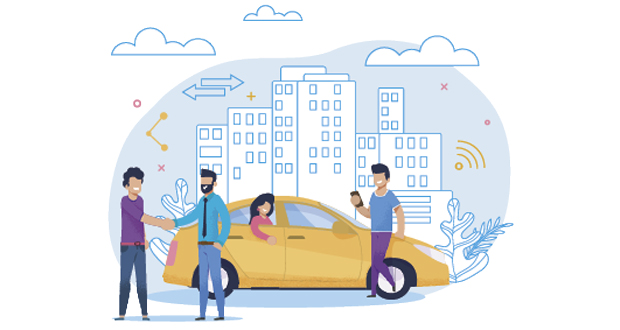As the UK begins to ease its way out of the current COVID-19 lockdown measures (albeit at different speeds across England, Scotland, Wales and Northern Ireland); employers may be thinking about asking their employees to begin travelling for work again (especially those who have a predominately mobile role).
This briefing outlines the range of issues that employers need to consider in developing controls for employees who are required to travel for work during the COVID-19 pandemic. It is not intended to cover how people get to their normal place of work, i.e. commuting.
OVERARCHING LEGAL REQUIREMENTS
In terms of travelling for work (or business travel); employers will need to ensure that they are protecting the safety of their employees and others, so far as is reasonably practicable, under the general health and safety obligations of the Health and Safety at Work etc. Act 1974. Failing to discharge these duties could result in criminal prosecution of the employer and in some cases its directors or senior managers. In addition, if the employer does not take adequate measures to safeguard employees and an employee consequentially contracts COVID-19, then a civil claim could be made against the employer for damages for the resulting ill health or death of the employee and those directly affected such as members of the employee’s household.
DETERMINING WHETHER EMPLOYEES SHOULD TRAVEL FOR WORK
Before requiring employees to travel for work, employers must be able to justify their decision, and should only consider it as an option where the activity is considered to be ‘reasonably necessary’ and cannot be completed in some other way. For example, if customer meetings have been successfully completed over the past few months remotely, do they now need to be face-to-face?
Once a decision has been made for business travel to recommence, employers should include this in their COVID-Secure risk assessment. Employers must also be aware of the need to protect employees who are ‘clinically vulnerable’ and avoid putting them in situations where they are at increased risk of contracting COVID-19 – for example, requiring them to use public transport for work. This also applies to employees who are shielding people (normally in their household) who are ‘clinically extremely vulnerable’. Employees should also be reminded about the need to self-isolate if they experience any COVID-19 symptoms.
DRIVING FOR WORK
Firstly, employers should consider whether drivers need some basic driver awareness/driving skills refresher training before they get back on the road (as driving skills can fade after an extended period of not using a vehicle). Employers should also check that vehicle maintenance has been completed where required and that their insurance cover remains up to date.
Drivers will need to carefully plan their route, including any breaks, before setting out – as traditional routes may have new restrictions. Normal rest areas may also be closed (or offering a limited service), so employees may need to bring their own food and drink. Drivers also need to ensure that their vehicles are roadworthy, especially if they have not been used for an extended period of time.
Employers also need to be mindful that journeys may take longer than normal and, even where travel time is not considered part of the normal working day, the foreseeable effects of adding driving time to the period employees need to remain alert and focused should be considered when scheduling work activities.
Drivers should expect more pedestrians and cyclists on the road, especially at peak times of day. Where possible, drivers should allow other road users to maintain a suitable social distance, e.g. giving cyclists space at traffic lights. Drivers should also limit the time they spend at garages, petrol stations and motorway services.
There may also be occasions where employees who do not normally drive for work are required to use their personal vehicle for travel. In addition to measures outlined above, employers must ensure that licence checks are conducted together with ensuring that personal vehicle insurance policies cover employees for business travel or the employer has an overall insurance policy providing such cover for use of private vehicles for business travel on behalf of the organisation.
PANDEMIC CONTROLS AT THIRD PARTY SITES
Before sending employees to third party (i.e. customer and client) sites, employers need to satisfy themselves that there are appropriate measures in place for them to maintain social distancing and that welfare facilities are suitable and sufficient. Employers should also ask the third party or site in question to confirm that they have completed a COVID-Secure risk assessment (and possibly obtain a copy in advance) and that any control measures identified have been implemented.
In addition, employers could also investigate whether their employees can arrive outside of normal site start/finish times to avoid larger crowds or, if the site visited has staggered start times, to co-ordinate arrival times to target the lowest traffic times. Work should also be planned with the third party to avoid as much face-to-face contact as possible. For example, physical paper records could be replaced with digital information to reduce means of transferring the virus.
Employers should also provide their employees with additional hygiene supplies, particularly hand sanitiser.
For a full guide to Mobile/Travelling Employee Safety and COVID-19, including:
 Public transport, flights and ferries
Public transport, flights and ferries- Taxis and private hire vehicles
- Cycling for work
- International travel
- Overnight stays
Visit https://barbour-ehs.com to register





